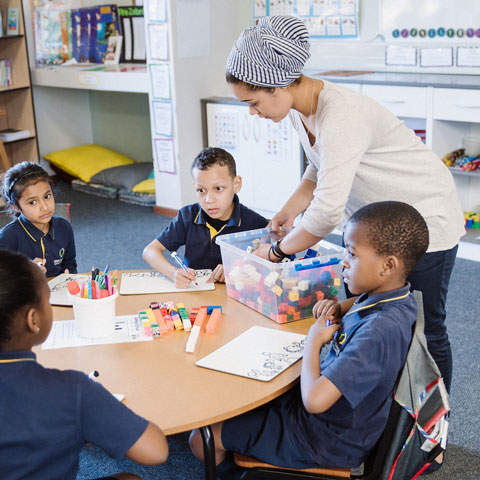Parents need to consider things that they can do at home to start preparing their child for school. It is also important to note that there is no absolute factor that can regulate whether a child is ready for school or not. However, school readiness hangs on various components as a child’s development takes place both at home and at school.
Here are 5 ways to help you prepare your child for school while at home:
Introduce your child to new people
To prepare a child for school, parents can expose the child to other people outside of their comfort zone and encourage the child to play, communicate and share their toys with other children. Healthy social development is important before a child can enter the school environment. A child’s ability to interact with others prepares them for what they can expect when they enter the school and classroom setting, where they will meet teachers and get to engage with other children from different backgrounds.
Encourage independence
Allowing your child to use the toilet unassisted is one way of encouraging independence. Also, give your child small instructions and tasks to do on their own to not only inspire independence, but to also build up their self-confidence after they accomplish those tasks successfully. For example, give your child directions to fetch or do something for you and congratulate them when they have completed that task. Nurturing your child’s independence is vital in the early stages of their development because it encourages them to be self-reliant and to learn how to solve problems on their own.
Develop their language skills
Having conversations with children will help them develop their vocabulary, language and listening skills. Read to children, ask them questions and teach them the names of things and people around them. Also, have children recite what you have taught them. This will encourage them to want to learn more and it will help them express themselves and communicate with others in a school setting.
Create opportunities to sort and count items
Allow your child to help you sort and count items at home. For instance, let them sort the big spoons from the small spoons in the kitchen and allow them to pack up their toys into groups. Start introducing them to numbers by having your child count items and objects around them and start a routine of measuring their height as they grow taller. Also, help them practice holding and using pencils, cutlery, and scissors to prepare them for school work.
Bring joy into learning
You want your child’s first introduction to learning to be a joyous one. Children learn best and have a positive attitude towards school when they enjoy education and this foundation can be established during their early childhood development at home. Encourage your child to play educational games that will help them with literacy and numeracy. For example, introduce your child to games like Scrabble and Monopoly to help with words and numbers. Let the first word your child can spell out loud and write be their own name. Also, traditional games like hide-and-seek, skipping and hop-scotch can help with learning how to count.
Source:
https://www.westerncape.gov.za/general-publication/school-readiness
https://www.worksheetcloud.com/blog/is-your-child-ready-for-grade-1-here-are-5-key-areas-to-assess/

